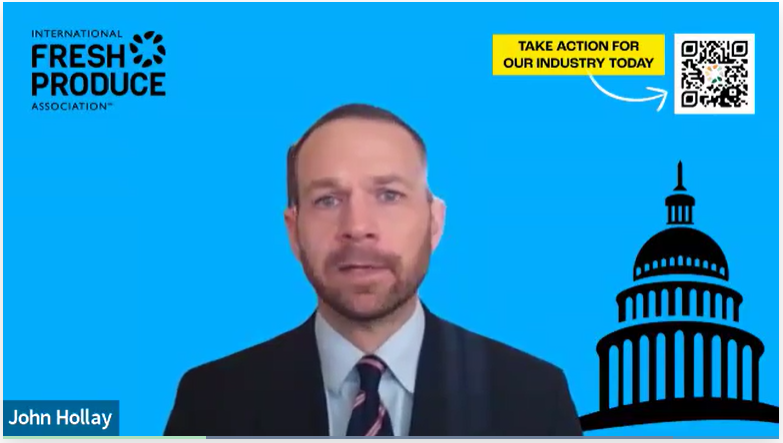Jan 27, 2024IFPA supports bill to freeze H-2A wage rate
The International Fresh Produce Association (IFPA) has announced support for the Supporting Farm Operations Act, an immediate measure to address wage relief.
The legislation freezes the Adverse Effect Wage Rate (AEWR), the wage rate that must be paid to H-2A temporary visa holders and their domestic counterparts. IFPA is urging members to contact their members of Congress to co-sponsor this bill.


“Out-of-control labor costs are already dampening domestic fresh produce production, so we know that additional increases would have a devastating impact on the entire supply chain,” Cathy Burns, IFPA CEO, said in a news release. “Congressman’s Moolenaar’s common-sense legislation freezes AEWR increases for two years, giving immediate relief and enough certainty for our industry to perform while Congress works on broader reforms that will bring stability to our labor force and long-term food security for our nation.”
While the Supporting Farm Operations Act (HR 7046) doesn’t address the full scope of IFPA’s demand for reform on Labor, it does provide immediate and meaningful relief that Congress can pass today, according to the release.
“This Bill is not everything we need, but it is a necessary step, and one that Congress can, and must, take to provide immediate relief to farmers across the country,” John Hollay, IFPA director of U.S. government relations, said in the release. “Congress has failed for more than four decades to address the agriculture labor crisis. While we will continue to push for the system wide reform that is needed, this bill can provide immediate relief and ensure that we do not lose any more farms across America.”


In recent years, the H-2A labor program has increasingly filled labor needs for specialty crop growers when Americans are unwilling to fill available jobs. All H-2A workers are paid in accordance with the Adverse Effect Wage Rate (AEWR), and over the last decade, the average rate has grown at twice the rate of inflation. Wages are typically the highest input cost for fruit and vegetable growers, and with rising rates and lack of available labor, fruit and vegetable production has declined nationally.
IFPA is calling on its members to tell their member of Congress to co-sponsor the bill by submitting a letter of support on the IFPA website’s Advocacy Action page. The Advocacy Action page allows members to input their address and email, and a letter will be generated and addressed to their Member of Congress.















